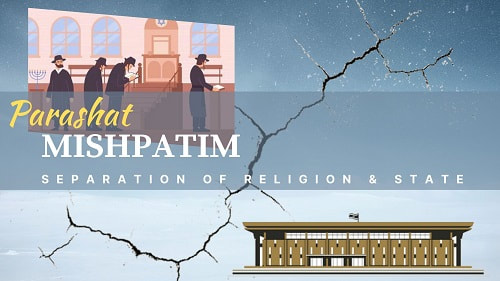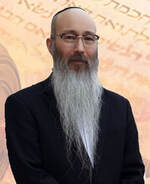|
By: HaRav Menashe Sasson מאת: הרב מנשה ששון The Hebrew word “mishpat” [משפט] means “law.” The plural of “mishpat” is“mispatim,” [משפטים]. Parashat Mishpatim sets forth various laws, some of which can be thought of as “religious” in nature and others which can be thought of as “secular,” “mundane” or not religious in nature. Parashat Mishpatim begins with “[n]ow these are the laws [המשפטים] which thou shalt set before them,” Shemot 21:1, and then proceeds to list various “secular” or “mundane” laws, such as those regarding civil negligence, punitive damages, and the law of self-defense: If a man shall open a pit, or if a man shall dig a pit and not cover it, and an ox or an ass fall into it, the owner of the pit shall make it good and give money to the owner of [the ox or ass], and the dead beast shall [belong to the owner of the pit]. Shemot 21:33-35, and If a man shall steal an ox, or a sheep, and kill it, or sell it; he shall restore five oxen for an ox, and four sheep for a sheep. If a thief be found breaking-in, and be smitten that he die, there shall be no blood shed on his account. Shemot 21:37-22:1. Parashat Mishpatim then transitions to various “religious” laws, some of which include: “Six days thou shalt do thy work, and on the seventh day thou shalt rest. . . ,” Shemot 23:12, “[t]hree times thou shalt keep a feast to Me in the year,” Shemot 23:14, and “[t]hou shalt keep the feast of unleavened bread . . . and the feast of the harvest . . . , and the feast of the ingathering.” Shemot 23:15-16. HaShem then says, “Behold, I send an angel before thee, to thee in the way and to bring thee to the place which I have prepared. Take heed of him and obey his voice.” Shemot 23:20-21. HaShem continues, saying that if the Jewish people “shalt indeed obey [the angel, then HaShem] will be an enemy to thy enemies and an adversary to thy adversaries.” Shemot 23:22. HaShem is not speaking generally of the enemies of the Jewish people, but, rather, of those enemies who are occupying Eretz Israel, “the Emori, and the Hitti, and the Perizzi, and the Kena’ani, and the Hivvi, and the Yevusi; [saying that He] will cut them off.” Shemot 23:23. HaShem continues: I will not drive them out from before thee in one year; lest the Land become desolate. . . . Little by little I will drive them out from before thee, until thou be increased and inherit the Land. And I will set thy bounds from the Sea of Suf [northern part of the Gulf of Suez] even to the Sea of the Pelishtim [Mediterranean Sea] and from the desert to the [Euphrates] River, for I will deliver the inhabitants of the land into your hand; and thou shalt drive them out before thee. Thou shalt make no covenant with them, nor with their gods. They shall not dwell in the land, lest they make thee sin against Me, for if thou serve their gods, it will surely be a snare to thee. Shemot 23:29-33. There are several important lessons we can learn from Parashat Mishpatim:
The Jewish people – and the government of Medinat Israel – should always have faith [אמונה] and trust [בטחון] in HaShem and in HaShem’s Torah, regardless of whether, or perhaps especially when, those laws challenge contemporary and Western “wisdom.” שבת שלום Shabbat Shalom! Copyright © The Israel Foundation. All Rights Reserved.
1 Comment
2/16/2023 11:15:02
Hi Rabbi, like usual, your comments are spot on! Thank you for the emails! Ben and Ari Casey
Reply
Your comment will be posted after it is approved.
Leave a Reply. |
THE ISRAEL FOUNDATION


